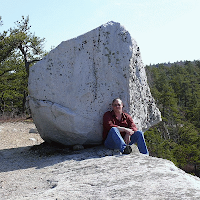President Obama and Education Secretary Arne Duncan's plans for higher education are evident in their attraction to community colleges. All of the features that most educators deplore about community colleges are what the current administration likes about them: top-down control of curriculum, disposable instructors, automated courseware, a training model of education, and management highly responsive to local employers. Their ambitions for publicly-funded higher education are closely parallel to their commitments in the schools: more automation, a standardized national curriculum, and centralization of control with an intensified assessment regime.
It's clear that Bousquet has never set foot on a community college campus. This certainly doesn't even come close to the college I've been teaching at for over a decade. Let's look at each point.
Top-down control of curriculum - While the administration might suggest a new course or program, they need to get the appropriate department to support it. New courses or programs first require department approval and then must go to the curriculum committee which is made up of full-time faculty representatives from all departments. Then after curriculum committee approval, there's a time span where faculty still have the opportunity to object. Without faculty approval, new curriculum is dead in the water. In terms of existing courses, the administration has absolutely no say in how I teach the material in my courses.
Disposable instructors - It's true that we use part-time adjunct instructors as does every college and university in the country (and graduate teaching assistants are disposable instructors as well, Dr. Bousquet, I did that for many years for a pittance and no health insurance). We have about two adjuncts for every full-time faculty member which is not atypical. I will also note that a number of our adjuncts have PhDs in the field they're teaching and all the rest have Master's degrees with many having decades of teaching experience. In my department (of which I'm chair), we don't treat them as disposable, many have been with us for years (we prefer to use people who are good and have experience!).
Automated courseware - Absolutely not at our college! I assume he's talking about online courses and we wouldn't stand for an instructor running a course that way in my department. As a matter of fact, I'm on the Distance Learning Committee at my institution and right now we're looking into Quality Matters certification for all our online courses because we WANT high quality online education.
A training model of education - While we have a few certificate programs leading to job skills (computer networking, police academy, drafting), the overwhelming majority of our students get a liberal arts education, meeting the required State University of New York General Education requirements, and transfer to four-year colleges and universities. We are not, by any stretch of the imagination, a vocational school. Most of our "training" is getting deficient high school graduates up to college level in their math and English skills!
Management highly responsive to local employers - What local employers? McDonalds? The mall? The problem is that in the mid-Hudson Valley of New York there aren't many jobs and certainly no industry we can train students to enter. We do have a strong non-credit program at the college that's trying hard to work with local small businesses and develop green energy programs and the like but they're completely independent from the academic programs at the college. In the academic area, we do want to be responsive to community needs since that's our enrollment, what's wrong with that?
Their ambitions for publicly-funded higher education are closely parallel to their commitments in the schools: more automation, a standardized national curriculum, and centralization of control with an intensified assessment regime.
This is a worry among faculty at our community college. But it's not coming from our administration but from the State University of New York (SUNY) administration in Albany and applied to all 64 SUNY campuses in the State, not just the community colleges.


No comments:
Post a Comment